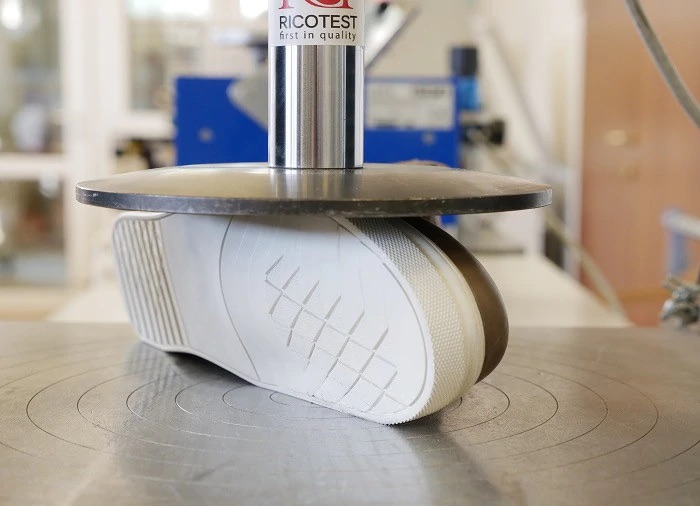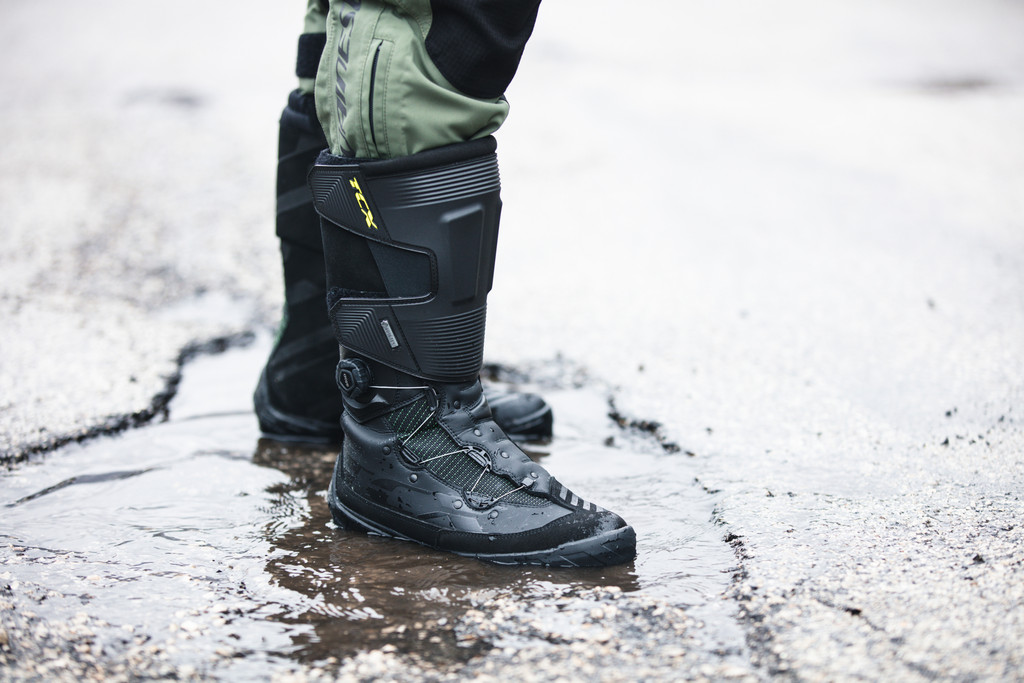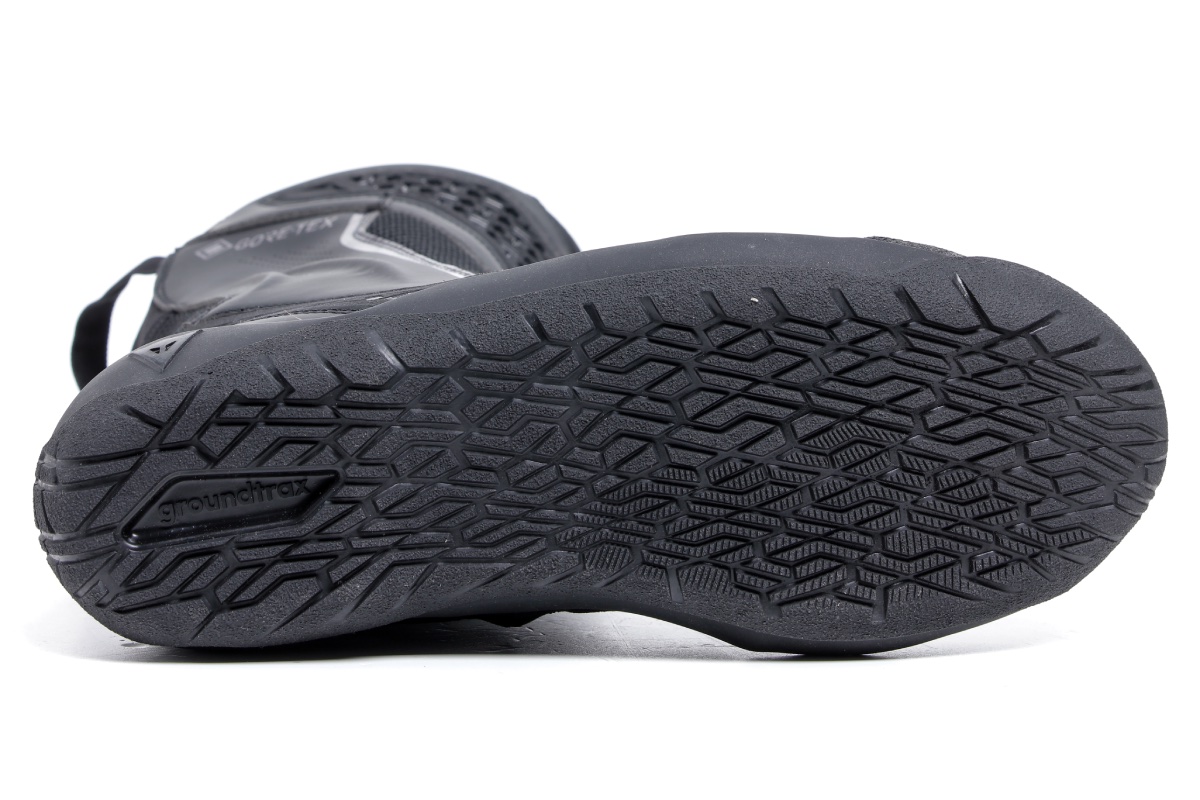For motorcycle riders, two-wheel travel is one of life’s greatest pleasures, and those who disagree have probably never done it properly. Joking aside, visiting new regions or countries is always a joy for people who love touring, but you need to prepare, so dress, properly to make that joy complete. Motorcycle touring boots aren’t of less importance when it comes to items of clothing, and if chosen intelligently can boost riding confidence on one hand and increase comfort throughout the day on the other, even when you get off the bike.
Technical motorcycle footwear, often unfairly underestimated, is actually of primary importance for safety. Just think – how often do you rest a foot on the ground on a trip, or just getting around town? Dozens of times, if not hundreds – at every stop sign or stop, countless times just during maneuvers from a standstill. Each time is, potentially, dangerous for your foot and ankle joint. All it takes is a bit of gravel or tiny little imbalance to regret not protecting yourself properly.
So it’s smart to always wear certified motorcycle footwear. Even in the city, after all, there are lightweight, comfortable shoes you can easily keep on all day. But the more hours you spend in the saddle, of course, the more miles you rack up and the more varied the weather conditions you’re exposed to, the wiser it becomes to wear a proper protective motorcycle boot.

And let’s make the necessary distinctions right away, because certified motorcycle boots are a whole new ball game compared to combats or hiking boots, even if these are sturdier than sneakers. Technical motorcycle footwear certification is regulated by a European standard involving a series of lab tests related to upper and sole abrasion resistance, impact protection, cut resistance, sole deformation resistance, and many others. Only a boot, or shoe, that passes all these tests can rightly be called ‘protective’.
When choosing the right motorcycle touring boot for your needs, there are features common to all types of boots that you need to consider, namely:
A waterproof membrane is now considered essential on motorcycle touring boots. By definition, touring riders have to be prepared to deal with all kinds of conditions, and while it’s possible to use waterproof kits that can be crammed into a bag for jacket, gloves and pants, it’s obviously not ideal to carry a second pair of boots around to change them according to the whims of the weather. Waterproof membrane it is then. There are various types – the most prestigious brand is Gore-Tex®, but there are other waterproof motorcycle touring boot solutions.

Because a membrane is a compromise by nature, it may favor waterproofing at the expense of breathability or vice versa. In short, a membrane is a material full of tiny holes, large enough to allow moisture to escape, but small enough that water droplets can’t get through. The tendency toward one characteristic or the other depends on the number of holes.
To maintain a high level of comfort even after many hours, as well as for short walks during stops, attention should be paid to even such an apparently insignificant detail as the insole. This too contributes to correct dissipation of the heat and perspiration generated by feet. While the upper is to be found on the upper side of the foot, which will ensure a given degree of breathability depending on how it’s made, there’s a sole at the bottom made of rubber, which may have a certain porosity but certainly isn’t famous for its breathability.
And in the middle is the insole, which therefore needs to alleviate some of the strain of riding and of walking as well as as ensuring the dissipation of moisture under the sole of the foot as well.
This too is one variable in choosing a touring boot, and the advantages of each solution are easy to recognize. High boots is the classic option – protective, perfect for hardcore travelers and long-distance travel. Coverage is clearly greater and there’s maximum safety.
Low boots is the intermediate option between motorcycle shoe and traditional boot. They’re lighter and more practical, ideal for less intense touring and if the itinerary is broken up with lots of stops involving long walks.
The main focus of motorcycle boots for road touring is comfort. It’s not uncommon for serious travelers to set out from home or hotel early in the morning and return only around sunset or even later. When you get down to it, it’s not just a whim, it’s crucial.
Comfort is something that needs breaking down, however. Comfort proper, which derives from ergonomics, consistency of materials and careful workmanship, needs to be distinguished from thermal comfort, which depends on the presence of the membrane we mentioned before and any perforation in the material of the upper. This can determine whether an article can stand up to the coldest climates or not.
For the rider to be in the best conditions, motorcycle touring boots have to cover both fronts, so that they’re not annoying in any way even when worn for the whole day. It can mean 12 or more hours with the same boots on, so comfort is definitely important, from every perspective.
That makes it necessary to look for boots that use fine materials, with great care taken to design the fit and with integrated stretch panels where required. The protectors too – essential – have to be designed to adapt to movement, to not be rigid or obstructive when riding, while still performing their function as well as possible. That’s why Dainese has developed integrated protectors, in all articles of clothing and boots as well, that are soft and flexible but effective in impacts, especially in the shin and malleolus area. Motorcycle boots also need particular reinforcement on the toe and heel and in the area of contact with the shift lever.
The outsole too is fundamental on touring boots, performing many functions on long road trips. It must of course provide the right grip on the pegs and the ground, even when it’s wet. So you need to look for boots with specific outsole materials and designs for this use, with differentiated textures according to the task of a given outsole area, whether it needs to be in contact with the peg or operate the brake or shift lever.
It then has to absorb the vibrations from the foot pegs, which may be negligible if you’re on the bike for an hour or two, but can become a problem if that exposure is multiplied. So a structure is required that’s rigid enough to provide support and protection but not too much, in order to cushion the vibration.

The upper of road touring boots can be made of different materials. The simplest is microfiber, but that doesn’t mean it offers lower performance. When perforated, microfiber is a synthetic material that can provide an excellent balance of insulation against atmospheric agents and breathability. It will result in a lightweight boot that’s still perfect for four-season use. The alternative is cowhide, which is of higher quality, softer and more consistent; this too has excellent breathability characteristics but offers better insulation against low temperatures.
It’s no secret that part of what people enjoy about motorcycle touring is visiting the locations you come to. It means that touring boots have to ensure a certain practicality even when you park your bike and set out on foot. The construction of the sole and entire upper also has to take this into consideration; too much rigidity means heaviness and discomfort when walking.
Lastly, there’s the fastening system. The most practical one for a road touring boot is a side zipper, which of course has to be waterproofed and assisted by a large Velcro fastener in the upper area, to personalize the width of the shaft to the millimeter based on the size of the calf.
As the terrain changes, so do the needs. Requirements are quite different on adventure motorcycle boots, and from various perspectives – in particular, the sole, protection and type of fastening.
The sole has to be tessellated to provide plenty of grip on both the foot pegs and the ground, even on dirt and wet roads. Here’s some advice about that, by the way – when you plan to ride off-road, and therefore standing, remove the rubber from the foot pegs of your maxi enduro. They’re there to dampen vibrations, but they’re extremely slippery when wet. In most cases it takes no longer than a couple of minutes, so it’s worth the time to increase safety and confidence.
Returning to the subject of adventure motorcycle boots, the outsole is central, not only in terms of grip and the control it has to guarantee, but also when it comes to rigidity. Riding on dirt roads and trails means riding in a standing position most of the time. In that situation, almost all weight is directed onto feet and ankles – with the obvious exception of that on the arms and wrists of course – and the boots therefore need to withstand it. Greater stiffness is therefore needed so that the sole of the foot and ankle joint aren’t forced to work too hard to stay stable on rough terrain.
This need for stability means that the boot upper too needs greater reinforcement, in the ankle area in particular. The best material is cowhide, which can combine softness, comfort, strength and durability despite harsh treatment.
Adventure motorcycle boots generally require greater solidity, because feet frequently rest on uneven ground, often among stones. Rigid shin protection is also essential. At any point when riding, not only in falls, you can strike rigid objects, not least parts of the bike like foot pegs, or cylinders on some models. Only those who have felt it at least once know how much it hurts to hit a bare shin, since the shinbone isn’t protected by any muscle at the front.
In addition to the shin area, the toe, heel area and whole inside of the boot also have to be properly reinforced. It’s a good idea to look for models that feature a highly abrasion-resistant material inside. When you ride in a standing position, you tend to squeeze the bike between legs and knees, creating friction between boots and bike parts and making greater durability necessary.
Adventure motorcycle boot fastening is partly based on purely off-road boots, with metal length-adjustable hooks to wrap the instep as well as possible and ensure great fit. The most refined models also feature an internal lace, again useful for adjusting the fit to the millimeter in the instep area. On the shaft, on the other hand, there has to be a Velcro panel like that on road boots in order to adjust the width perfectly, whether you decide to wear pants inside or outside the boots.
Whether you prefer asphalt, or feel an inescapable pull toward off-road riding and exploration, proper preparation of both bike and rider is key to an enjoyable experience free of worries or concerns. Among the many elements of motorcycle touring clothing, boots are among the most relevant.
Decide what kind of traveler you want to be, and your choice of boot will follow.